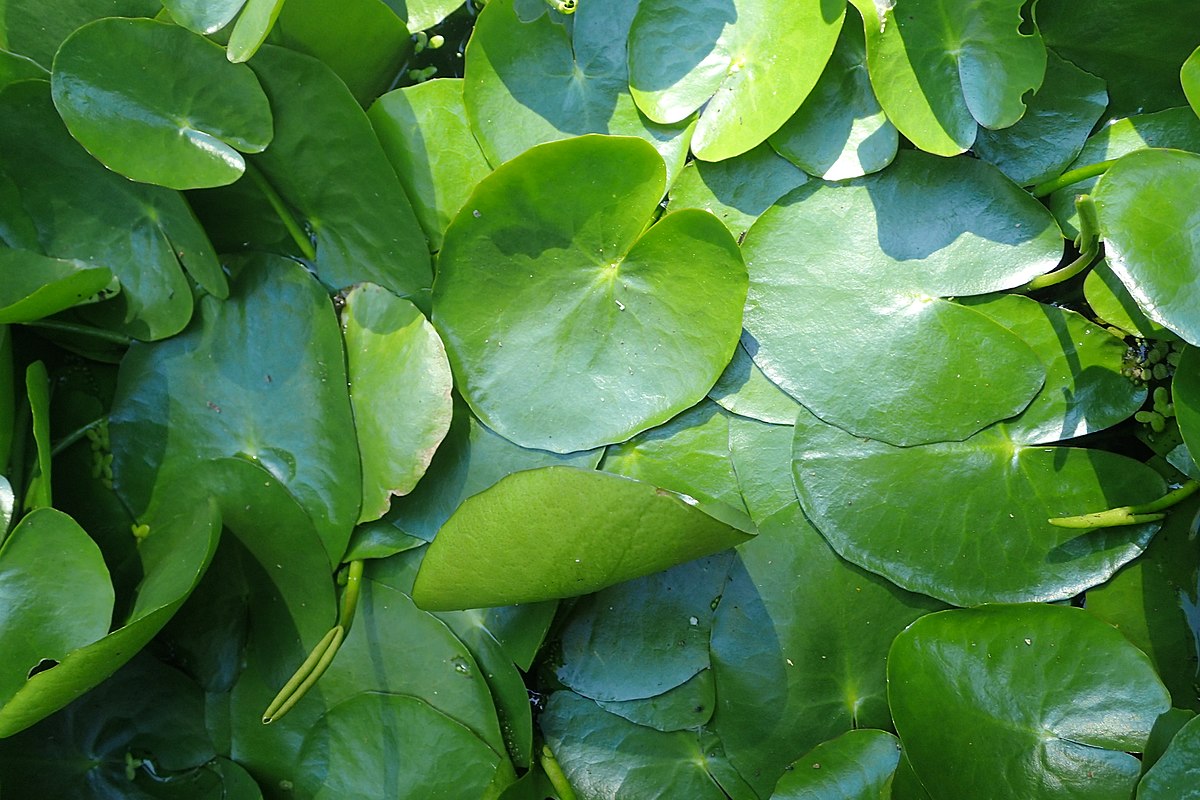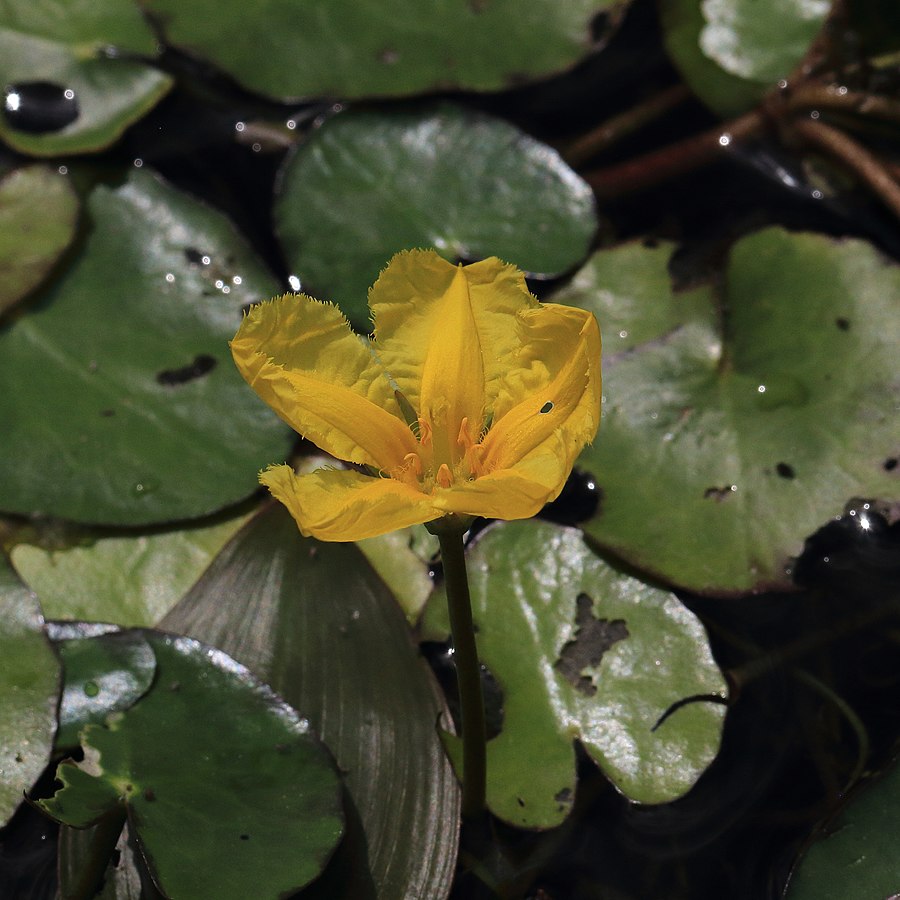Yellow Floating Heart

Yellow Floating Heart
(Nymphoides peltata)
Priority: - Prevent / EDRR
Tags: Aquatic
Identification and Reproduction
Identification:
- Yellow floating heart is a herbaceous, perennial, aquatic plant that roots at the bottom of waterbodies.
- Floating leaves were cordate shaped, ranging from 3-15 cm wide and green to yellow-green in colour. Undersides of leaves were purple. Leaves also had slightly wavy margins and attached to underwater rhizomes.
- It produces bright yellow flowers that sit above water on green stalks. Each individual flower is composed of 5 petals. Blooms occur from July to September.
Reproduction:
- Reproduces vegetatively through underwater stolons. If broken off it can reroot and produce a new shoot.
- It also produces seeds that are flat, oval with tiny hairs. These hairs help them float as well as attach onto objects or animals for further dispersal.
Habitat & Ecology
- Grows well in slow moving waters so it can anchor itself to the ground. It is common in lakes, rivers, ponds and marshes.
- It will also take over ditches, canals, waterways and dikes.
- Typically found in eutrophic, alkaline waters that are under 3 m deep.
Impacts
Social:
- Large infestations will inhibit recreational activities such as swimming, boating and fishing.
- It can also block irrigation canals.
- Its presence can also change the aesthetics of the waterbody.
Ecological:
- Forms dense mats that will out shade native aquatic species.
- Reduces biodiversity.
- As it slows water flow make the water stagnant and lower dissolved oxygen levels.
- Can disrupt the food web.
Management
Prevention is a high priority for this species.
- Refrain from planting and distributing this plant.
- Never dispose of unwanted aquarium material in natural waterbodies.
- If you suspect a plant may be yellow floating heart, report it.
Resources
For more details check out the Invasive Species Compendium datasheet on Nymphoides peltata (yellow floating heart).
Header photo (Krzysztof Ziarnek).




